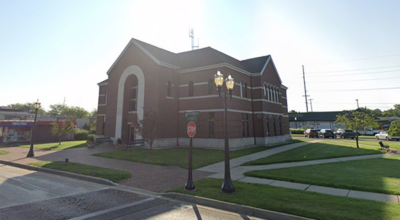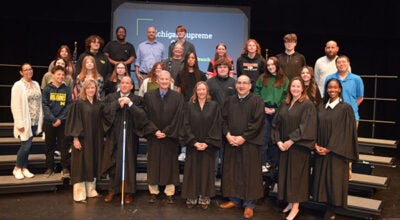NHS grad takes a look at presidential power in new book
Published 10:16 am Thursday, November 12, 2009
 By JESSICA SIEFF
By JESSICA SIEFF
Niles Daily Star
These days it seems like every move the president makes is under incredible scrutiny.
In his new book, Niles High School graduate Jeffery Crouch takes a closer look at a power yet to be used by President Barack Obama – the power of the pardon.
Crouch, a NHS graduate of the class of 1993 and an assistant professor of American politics at American University, is the author of “The Presidential Pardon Power,” a closer look at clemency, its purpose and its evolution.
“The stories behind a few of the sort of notorious pardons were very interesting,” Crouch said.
For many, those stories include former President Gerald Ford’s pardon of Richard Nixon and recently, George W. Bush’s pardon of I. Lewis “Scooter” Libby – whose prison sentence was actually commuted and not fully pardoned.
“It prevented Libby from having to talk,” Crouch said, while not actually pardoning him.
But the author’s interest in the power of the president to pardon went beyond the headlines.
“That’s sort of one of the underlying paradoxes,” of the power, he said. Barring the sensational or controversial cases – “most of the time people don’t pay much attention” to who gets a presidential pardon.
How presidents come to exercise their power is another element examined in Crouch’s book.
“The president doesn’t have much incentive to pardon,” he said. In fact, when it comes to the most recent memory, pardons have generally taken place at the end of the commander in chief’s term. Bush and Clinton both exercised their power of the clemency as lame duck presidents, he explained.
For that reason, it may seem a little early to begin looking at whether or not Obama will make use of his power any time soon. But a closer look at the history of the power to pardon might shed some light on what presidents are thinking when do choose to put it to use.
Bill Clinton came under some fire when he pardoned Marc Rich in what some have called an “eleventh hour” move.
Rich had been indicted for tax evasion to the tune of $48 million and had left the country during prosecution, residing in Switzerland at the time of his pardon.
Crouch said that later, it was found that Rich’s wife had been thought to have donated half a million dollars to Clinton’s presidential library.
The author’s opinion “is that is says something that our last three presidents have had something like that, personal benefit thing going on.”
More insight was found when Crouch dug deeper, into the work of the framers of the Constitution and how they built the pardon into the executive branch and how presidents as far back as during the Civil War era used their power.
“Lincoln and Johnson used the clemency to entice confederates to rejoin the union,” Crouch said.
The book is an extension of what Crouch worked on for his dissertation and he’s been working on it for years and has already received some positive reviews.
“In an era when the president’s constitutional powers are ever more important, it is an anomaly that the pardon power has been so little analyzed. With clarity and insight, Crouch resolves that anomaly in this important new book … A must-have for those who study the presidency and the Constitution,” said Robert J. Spitzer, author of “Saving the Constitution from Lawyers.”
Crouch’s book is available now.






